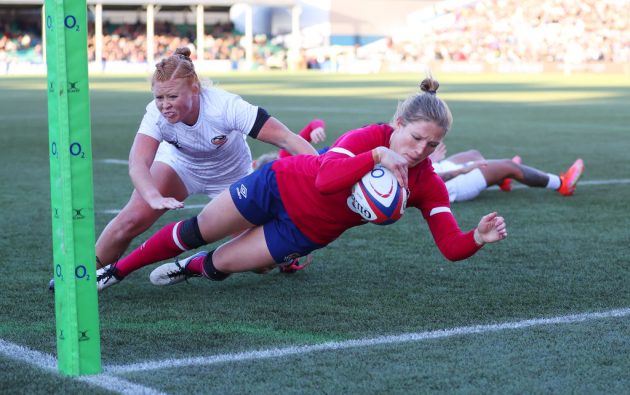Find out how the term 'try' originated and how the scoring system has changed
Why is a try called a try? Score four tries and you will win the game is a mantra trotted out by a few coaches but it wasn’t always this way. In fact, back in the day you could get over the goal-line 15 times in a game and still come away with a big fat zero on the scoreboard.
The word ‘try’ meant just that. If a team got themselves over the line, they had the chance to try to get points by converting the kick at goal. You can see what they did there. That would earn one point and tries were only counted if the scores were level and the team with more tries would be declared the winner.
 Watch the video
Watch the videoThe first International played between Scotland and England, at Raeburn Place in Edinburgh, in 1871 is down in most of the record books as a 1-0 win to the Scots, who actually scored two tries but only one goal, to England’s one try. Some other records have it as a win by one goal and one try to one try, but it was a gritty 1-0.
How many points is a try?
Nowadays a try is worth five points but it has only got to that value in increments. In 1886 a try was worth one point, which was doubled in 1891 and that became three points in 1905, with two points for a conversion, three for a penalty and four for a drop-goal.
In 1971 the try was raised to four points with the conversion, penalty and drop-goal being the familiar two, three and three points respectively. Then came the five-point try, adopted in 1992.
In 2015-16 a six-point try was trialled in Welsh semi-pro leagues, with penalties and drop-goals reduce to two points, to promote attacking rugby but that was abandoned.
In South Africa, in the 2016 Varsity Cup, a nine-point try was tested and awarded for a try originating from within your own half made up of five points for the try and four bonus points. For the record, Benhard Janse van Rensburg scored the first one playing for NWU Pukke against UP Tuks.
They also had a seven-point try, five plus two bonus points, for tries starting between the halfway line and the opponents’ 22 and two extra points were on offer for the conversion.
Some of the most famous rugby matches in history would have been very different if the modern scoring system had applied.
In 1980 when England beat Wales 9-8 at Twickenham, on their way to a Grand Slam under Bill Beaumont, they scored three penalties through full-back Dusty Hare. Wales managed two tries, from Jeff Squire and Elgan Rees, and would have won 10-9 in a modern game and Beaumont might not have made it onto A Question of Sport.
They would have won if they had managed to get a single kick at goal but that is another story.
Download the digital edition of Rugby World straight to your tablet or subscribe to the print edition to get the magazine delivered to your door.
Follow Rugby World on Facebook, Instagram and Twitter.





